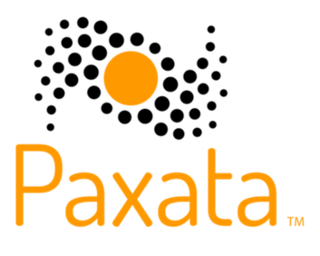Related Research Articles

Machine translation is use of computational techniques to translate text or speech from one language to another, including the contextual, idiomatic and pragmatic nuances of both languages.
Computer-aided translation (CAT), also referred to as computer-assisted translation or computer-aided human translation (CAHT), is the use of software, also known as a translator, to assist a human translator in the translation process. The translation is created by a human, and certain aspects of the process are facilitated by software; this is in contrast with machine translation (MT), in which the translation is created by a computer, optionally with some human intervention.
In the history of artificial intelligence, an AI winter is a period of reduced funding and interest in artificial intelligence research. The field has experienced several hype cycles, followed by disappointment and criticism, followed by funding cuts, followed by renewed interest years or even decades later.
Kaltura, Inc. is a New York-based software company founded in 2006. It operates in several major markets: webinars and virtual events, enterprise video content management and online video platform (OVP), educational technology, and Cloud TV software, and offers products such as video portal, LMS and CMS extension, virtual event and webinar platform, and TV streaming app.

Box, Inc. is a public company based in Redwood City, California. It develops and markets cloud-based content management, collaboration, and file sharing tools for businesses. Box was founded in 2005 by Aaron Levie and Dylan Smith. Initially, it focused on consumers, but around 2009 and 2010 Box pivoted to focus on business users. The company raised about $500 million over numerous funding rounds before going public in 2015. Its software allows users to store and manage files in an online folder system accessible from any device. Users can then comment on the files, share them, apply workflows, and implement security and governance policies.

Figure Eight was a human-in-the-loop machine learning and artificial intelligence company based in San Francisco.
Arabic is one of the major languages that have been given attention by machine translation (MT) researchers since the very early days of MT and specifically in the U.S. The language has always been considered "due to its morphological, syntactic, phonetic and phonological properties [to be] one of the most difficult languages for written and spoken language processing."
ProMT is a lead Russian developer of language translation software for businesses and private users since 1991. The company provides on-premises software based on neural technologies.

Jeffrey Adgate "Jeff" Dean is an American computer scientist and software engineer. Since 2018, he has been the lead of Google AI. He was appointed Google's chief scientist in 2023 after the merger of DeepMind and Google Brain into Google DeepMind.
Google Brain was a deep learning artificial intelligence research team that served as the sole AI branch of Google before being incorporated under the newer umbrella of Google AI, a research division at Google dedicated to artificial intelligence. Formed in 2011, it combined open-ended machine learning research with information systems and large-scale computing resources. It created tools such as TensorFlow, which allow neural networks to be used by the public, and multiple internal AI research projects, and aimed to create research opportunities in machine learning and natural language processing. It was merged into former Google sister company DeepMind to form Google DeepMind in April 2023.
OpenNN is a software library written in the C++ programming language which implements neural networks, a main area of deep learning research. The library is open-source, licensed under the GNU Lesser General Public License.
Feedzai is a data science company that develops real-time machine learning tools to identify fraudulent payment transactions and minimize risk in the financial services, retail, and e-commerce industries. The company has been classified as a unicorn startup since March 2021, after a Series D funding round pushed its value above $1 billion.

Paxata is a privately owned software company headquartered in Redwood City, California. It develops self-service data preparation software that gets data ready for data analytics software. Paxata's software is intended for business analysts, as opposed to technical staff. It is used to combine data from different sources, then check it for data quality issues, such as duplicates and outliers. Algorithms and machine learning automate certain aspects of data preparation and users work with the software through a user-interface similar to Excel spreadsheets.
MateCat is a web-based computer-assisted translation (CAT) tool, released as open-source software under the Lesser General Public License (LGPL).
Robotic process automation (RPA) is a form of business process automation that is based on software robots (bots) or artificial intelligence (AI) agents. RPA should not be confused with artificial intelligence as it is based on automotive technology following a predefined workflow. It is sometimes referred to as software robotics.
Google Neural Machine Translation (GNMT) was a neural machine translation (NMT) system developed by Google and introduced in November 2016 that used an artificial neural network to increase fluency and accuracy in Google Translate. The neural network consisted of two main blocks, an encoder and a decoder, both of LSTM architecture with 8 1024-wide layers each and a simple 1-layer 1024-wide feedforward attention mechanism connecting them. The total number of parameters has been variously described as over 160 million, approximately 210 million, 278 million or 380 million. It used WordPiece tokenizer, and beam search decoding strategy. It ran on Tensor Processing Units.
The Open Neural Network Exchange (ONNX) [] is an open-source artificial intelligence ecosystem of technology companies and research organizations that establish open standards for representing machine learning algorithms and software tools to promote innovation and collaboration in the AI sector. ONNX is available on GitHub.
Clarifai is a leader in AI orchestration and development, helping organizations, teams, and developers build, deploy, orchestrate, and operationalize AI at scale. Clarifai’s cutting-edge AI workflow orchestration platform leverages today's modern AI technologies like Large Language Model(LLMs), Large Vision Model (LVMs), and Retrieval Augmented Generation (RAG), data labeling, inference, and more, and is available in cloud, on-premises, or hybrid environments. Founded in 2013, Clarifai has been used to build more than 1.5 million AI models with more than 400,000 users in 170 countries.

Multiverse Computing is a Spanish quantum computing software company headquartered in San Sebastián, Spain, with offices in Paris, Munich, London, Toronto and Sherbrooke, Canada. The Spanish startup applies quantum and quantum-inspired algorithms to problems in energy, logistics, manufacturing, mobility, life sciences, finance, cybersecurity, chemistry, materials science and aerospace.
Open-source artificial intelligence is an AI system that is freely available to use, study, modify, and share. These attributes extend to each of the system's components, including datasets, code, and model parameters, promoting a collaborative and transparent approach to AI development. Free and open-source software (FOSS) licenses, such as the Apache License, MIT License, and GNU General Public License, outline the terms under which open-source artificial intelligence can be accessed, modified, and redistributed.
References
- ↑ The Matecat Tool
- ↑ MateCat: an Open Source CAT Tool for MT post-‐edi8ng
- ↑ Multilingual Magazine, February 2024
- ↑ This Is the Speed at Which We Are Approaching Singularity in AI
- ↑ Measuring User Productivity in Machine Translation Enhanced Computer Assisted Translation
- ↑ AMTA 2022 Orlando
- ↑ Multilingual Magazine, February 2021
- ↑ The Next Web, January 2023
- ↑ Popular Mechanics Magazine, June 2023
- ↑ UniCamillus Global Health Journal
- ↑ "Translated named in the 2022 Gartner® Market Guide for AI-Enabled Translation Services".
- ↑ Machine Translation Software 2022 Vendor Assessment
- ↑ Defenx acquires Memopal
- ↑ ModernMT and the Promise of Responsive MT
- ↑ New Research Confirms ModernMT Outperforms Leading MT and GenAI Solutions for Enterprise Translations
- ↑ Machine Translation Enhanced Computer Assisted Translation
- ↑ "Matecat Wins Taus Game Changers Innovation Contest in Shenzhen | TAUS". Archived from the original on 2017-07-21.
- ↑ Two Translation Technology Companies Nominated for New EU innovation Radar Award
- ↑ MMT: New open source MT for the translation industry
- ↑ "Modernmt/Modernmt". GitHub .
- ↑ Gartner Market Guide for AI-Enabled Translation Services
- ↑ Translated's TranslationOS
- ↑ "A Daysail with Paul Cayard and the Ocean Globe Race". 13 May 2022.
- ↑ Applying the Startup Approach to Sailing Around the World
- ↑ "Seahorse Sailor of the Month Hall of Fame".
- ↑ "Velista dell'anno (Giornale della Vela), da Rossetti a Trombetti tutti i vincitori". 26 May 2024.